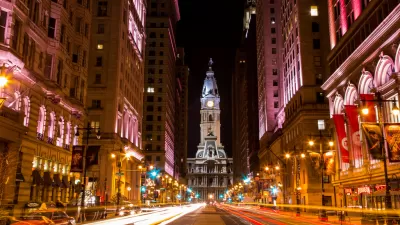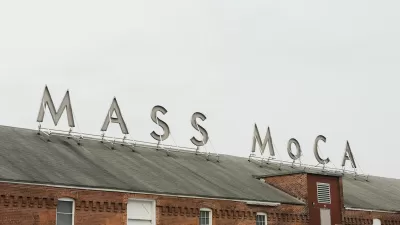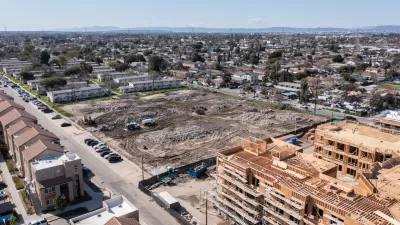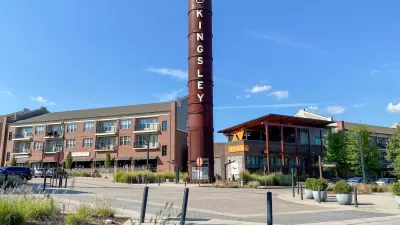Philadelphia, a city rife with historic architecture, seeks to incentivize more conversion of historic buildings into housing.

According to an article by Taylor Allen, “The number of old buildings being converted into apartments is on the rise across the country. Converted units have nearly quadrupled since 2010, from 5,271 to 20,122 by the end of 2021.” Focusing on Philadelphia, Allen notes that “Philadelphia converted a total of 1,863 units in 2020 and 2021 combined, the most of any U.S. city over that two-year period, according to a report from Rent Cafe.”
However, in part due to the higher cost of converting old buildings, “The overwhelming majority of redevelopment in the city is still new construction, according to Drexel University economist Kevin Gillen.” The city aims to change that through incentives that encourage developers to repurpose old buildings. “A bill that took effect this year is starting to phase out the city's 10-year property tax abatement for new residential construction. But, there’s a caveat for converted properties, which get to keep the entire 10-year tax incentive.” Additionally, “As of 2019, Rehab projects that are historically designated don't have to provide parking, and some get zoning perks.”
Paul Steinke, executive director of the Preservation Alliance of Greater Philadelphia, expressed hope that affordable housing developers could play a larger role in the conversion of historic buildings. “It'd be great to see more adaptive reuse for affordable housing since there’s quite a bit for market-rate housing,” Steinke said.
FULL STORY: Preserving Philly's charm by converting old buildings into housing units

Alabama: Trump Terminates Settlements for Black Communities Harmed By Raw Sewage
Trump deemed the landmark civil rights agreement “illegal DEI and environmental justice policy.”

Planetizen Federal Action Tracker
A weekly monitor of how Trump’s orders and actions are impacting planners and planning in America.

The 120 Year Old Tiny Home Villages That Sheltered San Francisco’s Earthquake Refugees
More than a century ago, San Francisco mobilized to house thousands of residents displaced by the 1906 earthquake. Could their strategy offer a model for the present?

San Francisco Opens Park on Former Great Highway
The Sunset Dunes park’s grand opening attracted both fans and detractors.

Oregon Legislature to Consider Transit Funding Laws
One proposal would increase the state’s payroll tax by .08% to fund transit agencies and expand service.

Housing Vouchers as a Key Piece of Houston’s Housing Strategy
The Houston Housing Authority supports 19,000 households through the housing voucher program.
Urban Design for Planners 1: Software Tools
This six-course series explores essential urban design concepts using open source software and equips planners with the tools they need to participate fully in the urban design process.
Planning for Universal Design
Learn the tools for implementing Universal Design in planning regulations.
Clanton & Associates, Inc.
Jessamine County Fiscal Court
Institute for Housing and Urban Development Studies (IHS)
City of Grandview
Harvard GSD Executive Education
Toledo-Lucas County Plan Commissions
Salt Lake City
NYU Wagner Graduate School of Public Service





























